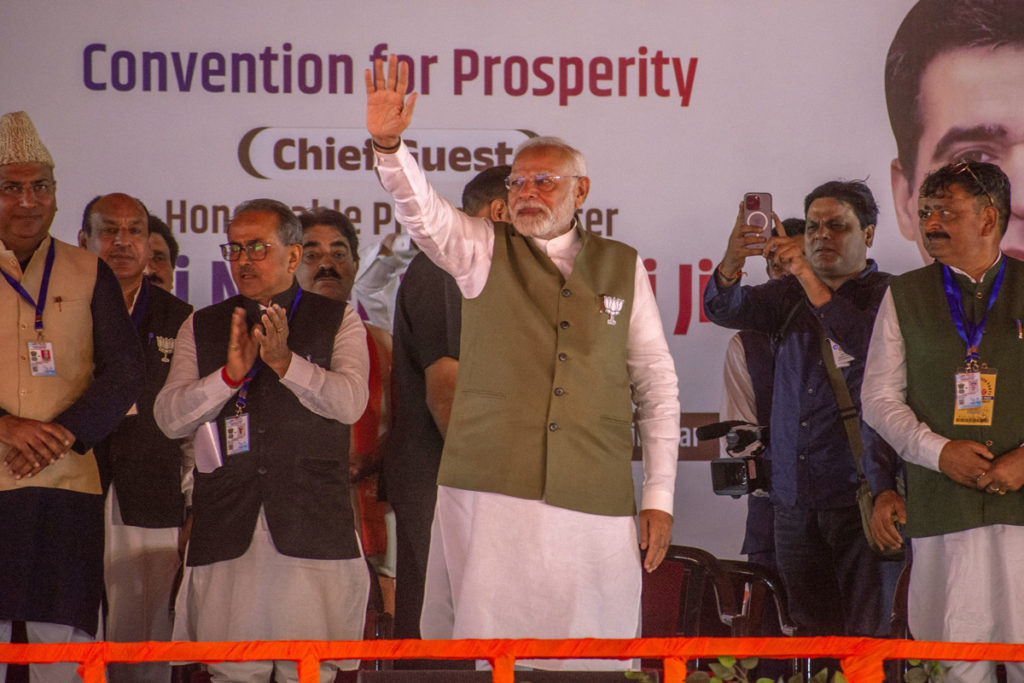- Europe
- Inde
India: Europe’s Forgotten Strategic Partner?
Thierry Mariani
Thierry Mariani is a French politician who served as Minister of Transport (2010–2012) and has been a Member of the European Parliament since 2019. He is part of the Patriots for Europe group in the European Parliament and serves on the board of its political foundation
Faced with Brussels’ strategic impotence, MEP Thierry Mariani calls for a sovereignist partnership between Europe and Narendra Modi’s India—an alliance rooted in identity, stability, technological sovereignty, and the fight against Islamist threats.
Europe is facing a crisis of strategy and vision. Between industrial decline, migratory upheaval, geopolitical tensions, and security threats, it must rethink its external alliances.
In this context, India stands as an essential yet underappreciated strategic partner. The dynamics underway in New Delhi—especially since Narendra Modi came to power—offer Europe a unique opportunity to build a partnership between sovereign, stable nations rooted in their identities and sharing vital economic and strategic interests.
The Rise of a Sovereign Power
Since 2014, India under Narendra Modi has not only undergone a spectacular economic transformation but has also embraced a renewed sense of civilizational identity.
Driven by the Bharatiya Janata Party (BJP), this transformation is part of a clear ambition to restore India’s millennia-old civilization, assert its values, and strengthen its strategic autonomy. This cultural and political renaissance is at the heart of India’s reassertion of sovereignty on the world stage.
Under the BJP’s leadership, India has seen deep transformation: millions lifted out of poverty, sustained economic growth, major technological advances, and an assertive industrial ambition. Most importantly, India openly asserts its geopolitical will, its national sovereignty, and its refusal to bow to Western diktats.
India’s doctrine of “multi-alignment” allows it to cooperate with the BRICS while also engaging the United States, Japan, the EU, and others. This strategic pragmatism is driven by the conviction that national and civilizational sovereignty is the key to fruitful cooperation.
Amid growing US-China tensions, India positions itself as a balancing power of the Global South, advocating for a multipolar world order less dominated by Western norms.
The EU would do well to seize this opportunity: Indo-European cooperation could become a strategic pillar in a multipolar world and a counterweight to American unpredictability.

The Prime minister Modi at Srinagar
A Long-Undervalued Partnership
EU–India relations are not new: the first agreements date back to 1963. A strategic partnership was officially signed in 2004, with pledges to cooperate on development, democracy, multilateralism, and security.
But the partnership has largely stalled. The 2005 joint action plan and the stalled BTIA free trade negotiations (suspended since 2013) were undermined by a fundamental divergence: a normative Europe vs. a pragmatic, sovereigntist India that resists external interference.
Today, however, Europe seems to be revising its posture. The EU’s 2024–2029 Strategic Agenda finally emphasizes competitiveness, decarbonization, and technological sovereignty. India—with its productive capacity, youth, cybersecurity and digital know-how, and non-aligned geopolitical stance—can be an ideal partner for a strategic, independent Europe.
Shared Priorities: Security, Islamism, and Technology
On the security front, India faces threats similar to those looming over Europe: radical Islamism, demographic pressures, and hybrid warfare. But unlike Brussels, New Delhi implements a strong, unapologetic national strategy based on unity and sovereignty.
In the context of global Islamic radicalization, India’s experience could be invaluable for European nations.
Economically and technologically, India is on track to become one of the world’s leading industrial powers. Strategic partnerships are emerging: the Solar Alliance, the EU-India Technology Council, and logistical corridors like IMEC (India-Middle East-Europe Corridor). These should be intensified—they align with Europe’s fundamental interests: energy sovereignty, decarbonization, and industrial reshoring.
Europe Must Move Beyond Moralism and Build Alliances
While the EU’s value-driven discourse has its place, it cannot substitute for a clear strategy grounded in geopolitical realities. The Patriots for Europe Foundation promotes another vision: strong bilateral cooperation based on national interest and cultural identity, not abstract, disconnected ideals.
India does not need moral lectures—it needs reliable partners.
Its commitment to sovereignty, technological ambition, and its unique ability to bridge North and South make it a natural ally for Europe’s patriotic forces.
The June 10, 2025 conference, hosted at the European Parliament by the Patriots for Europe Foundation—featuring Ram Madhav, Shazia Ilmi, Rohit Bansal, and Ram Divedi—is a first step.
Far from universalist incantations, we seek to build a partnership of nations grounded in sovereignty, mutual interest, and civilizational respect.

